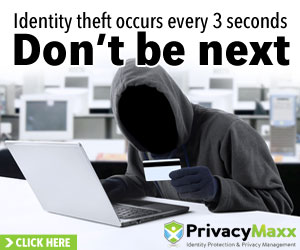
Here is what expert marketers recommend to keep your social media accounts protected round the clock.
1. Be Alert to Suspicious Activity: Cyber criminals are always on the prowl, the reason you must always be on alert for suspicious activity on your accounts. Diligently monitor your accounts for suspicious activity and take quick remedial measures if you notice any unauthorized activity. Some of such measures include but not limited to quickly changing your password, strengthening it or promptly reporting the activity to the platform admins.
2. Use Strong Encryption Tools: A social app like Whatsapp boasts of end-to-end encryption but even that may not be foolproof. Twitter, Facebook and LinkedIn use some encryption too to keep users’ data safe and secure. If you have access to additional encryption tools, you can use them in addition to what the social media platforms provide. When it comes to matters of online security for your social media accounts, you can never be too prepared.
3. Regularly Change Your Passwords: This is a good idea to keep hackers real busy trying unsuccessfully to break your passwords. If you change your passwords regularly and at any time you suspect any unauthorized activity, it can help you stave off security breaches. It may appear complex and requiring a lot of efforts from time to time, but it is all worth the while to keep your accounts secured.
4. Use Only Secure Passwords: It is only social media accounts with simple passwords that can be hacked easily. The more complex the passwords are, the more difficult it is to hack the accounts. What ensure this complexity are the length of characters counts and the mixture of these characters. Therefore, you must avoid using passwords that are easy to guess such as first names, names of pets, maiden names and so on. The general rule for strong passwords is a minimum 8-12 characters length, mixture of uppercase and lowercase characters, mixed with numbers and even some special and not too common characters/symbols.

TIP: No matter how secure your password appears to be, never use the same password across every social platform. Always make your passwords unique for each social media account.
5: Adopt Two-Factor Authentication: Since hackers are becoming smarter by the day, some social media platforms are now on their own recommending and even enforcing two-factor authentication on their accounts. It simply makes the job of hackers pretty difficult. When in place, it helps to prevent unauthorized parties from accessing your social media accounts. Even when they try, the platforms promptly raise alarms to notify and warn the accounts owners. Two-factor authentication is effective at point of logging in. While in place, anytime anyone tries to log in to your account, they’ll be asked to provide a second authentication factor. This factor may be a numeric code sent to your email or phone. It is that code in addition to your usual password that can give access into your account. Such authentication simply creates a huge lot of problems for hackers no doubt.



